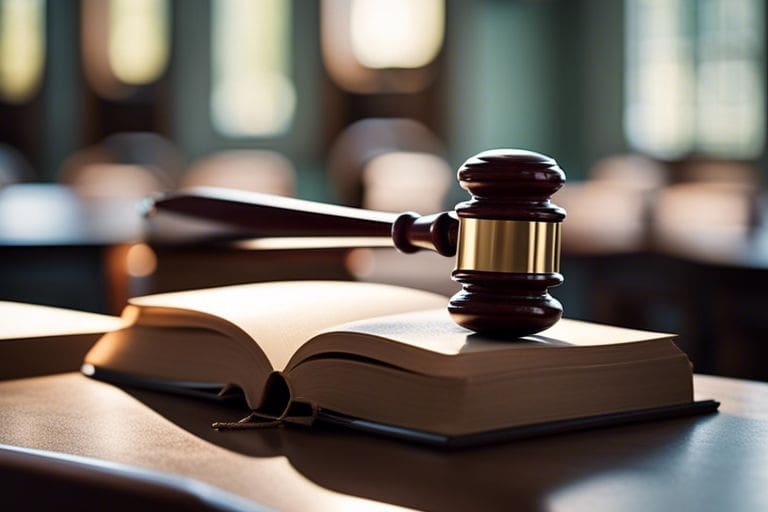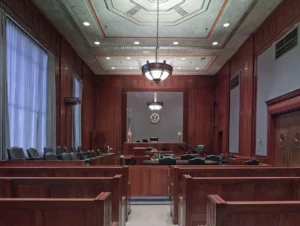School law is a crucial aspect of the legal landscape that directly impacts students, parents, educators, and administrators. Understanding the legal protections for students ensures their rights are upheld and provides a framework for addressing issues within the educational system. This comprehensive guide delves into the essential aspects of school law, highlighting key protections and offering practical advice for navigating this complex area.
Understanding School Law
School law encompasses various legal principles and regulations that govern the operation of educational institutions and the rights of students. Key areas include student rights, disciplinary procedures, special education, and anti-discrimination laws. These laws aim to create a safe, equitable, and supportive environment for all students.
Student rights are fundamental to school law. These rights include the right to a free and appropriate public education (FAPE), the right to privacy, and the right to be free from discrimination. Schools are required to respect these rights and implement policies that protect students’ interests.
Key Legal Protections for Students
- Right to Education: Every student has the right to access free and appropriate public education. This includes access to the necessary resources, support, and accommodations to ensure they can fully participate in the educational process.
- Anti-Discrimination Laws: Laws such as the Individuals with Disabilities Education Act (IDEA), Section 504 of the Rehabilitation Act, and Title IX of the Education Amendments Act protect students from discrimination based on disability, race, gender, and other protected characteristics. Schools must provide equal opportunities and address any instances of discrimination promptly.
Case Studies or Examples
Consider a case where a student with a disability was denied appropriate accommodations, resulting in a significant educational setback. Legal intervention ensured the student received the necessary support, highlighting the importance of understanding and enforcing student rights.
Another example involves a student facing racial discrimination at school. Legal advocacy helped the student secure a safer and more inclusive learning environment. These cases underscore the vital role of school law in protecting students’ rights and promoting equity.
Comparative Analysis
Comparing school laws across different regions reveals varying levels of protection and enforcement. For instance, the United States has robust federal laws like IDEA and Title IX that set national standards for student rights and anti-discrimination. In contrast, some countries may have less comprehensive protections, relying more on local or regional policies.
This comparative analysis highlights the need for continuous advocacy and policy development to ensure all students receive equal protection under the law. By understanding the strengths and weaknesses of different legal frameworks, stakeholders can work towards more effective and inclusive educational environments.
Detailed Breakdown of Legal Consequences
Non-compliance with school laws can lead to severe legal and financial consequences for educational institutions. Schools that fail to uphold students’ rights may face lawsuits, federal investigations, and significant penalties. These consequences not only impact the institution’s reputation but also its ability to provide a safe and supportive learning environment.
For instance, violations of Title IX can result in loss of federal funding and increased scrutiny from the Department of Education. Similarly, failing to comply with IDEA can lead to costly litigation and mandated corrective actions. Schools must prioritize compliance to avoid these repercussions and ensure they are serving their students effectively.
Step-by-Step Guide with Visuals
- Identify Student Rights: Educate students, parents, and educators about the rights protected under school law. This includes understanding FAPE, anti-discrimination protections, and privacy rights.
- Develop Policies: Schools should develop and implement policies that reflect legal requirements and best practices. This includes anti-bullying policies, accommodation procedures, and disciplinary guidelines.
- Training and Awareness: Conduct regular training sessions for staff and students on school law and their rights. Use visual aids and real-life scenarios to enhance understanding and retention.
- Monitor and Enforce Compliance: Establish mechanisms to monitor compliance with school laws and address violations promptly. This includes regular audits, feedback systems, and disciplinary measures.
- Advocate for Change: Engage with policymakers, community leaders, and legal experts to advocate for stronger protections and better enforcement of school laws. Collaboration is key to driving systemic change.
Technology and Tools
Leveraging technology can enhance compliance and awareness of school law. Learning management systems (LMS) can integrate training modules on legal protections for students. Case management software can help track and address incidents of discrimination or rights violations efficiently.
Digital platforms such as Attorneys.Media provide valuable resources, including legal insights and advocacy tools, to support schools and families in navigating school law. By embracing these technologies, stakeholders can ensure they are informed, prepared, and proactive in upholding students’ rights.
FAQ Section – Questions and Answers
Q: What are the key legal protections for students under school law? A: Key protections include the right to a free and appropriate public education, anti-discrimination laws, and privacy rights. These ensure students can learn in a safe and supportive environment.
Q: How can schools ensure compliance with student rights? A: Schools can ensure compliance by developing robust policies, conducting regular training, monitoring compliance, and promptly addressing violations. Leveraging technology and legal resources can also enhance compliance efforts.
Q: What are the consequences of non-compliance with school laws? A: Non-compliance can result in lawsuits, federal investigations, loss of funding, and reputational damage. Schools must prioritize legal compliance to avoid these repercussions and ensure they provide a safe learning environment.
Legislative Changes and Trends
School law is continuously evolving to address new challenges and emerging issues. Recent trends include a greater emphasis on mental health support, cyberbullying prevention, and inclusive education. Legislative changes are also focusing on enhancing protections for LGBTQ+ students and addressing racial disparities in education.
Understanding these trends is crucial for staying compliant and ensuring students receive the necessary support and protections. Schools must adapt their policies and practices to reflect these changes and promote a more inclusive and equitable educational environment.
Ethical Considerations
Beyond legal compliance, ethical considerations play a significant role in school law. Schools have a moral obligation to create a safe and supportive environment for all students. This involves not only adhering to legal standards but also fostering a culture of respect, inclusivity, and empathy.
Ethical considerations include promoting transparency, addressing issues promptly, and prioritizing the well-being of students. By upholding ethical standards, schools can build trust with students and their families, enhancing the overall educational experience.
What Type of Attorney for This Type of Legality to Represent the Client and How to Find Them on Attorneys.Media
When dealing with school law issues, it is essential to consult with an education attorney who specializes in student rights and school regulations. These attorneys have the expertise to navigate complex legal frameworks, provide strategic advice, and represent clients in legal matters.
Finding a qualified education attorney on Attorneys.Media is straightforward. The platform features detailed profiles of attorneys who specialize in school law. By watching video interviews and reading their profiles, you can assess their expertise and approach, making it easier to choose the right legal representative.
To find an education attorney on Attorneys.Media, start by searching for attorneys who specialize in student rights or school law. The platform provides comprehensive profiles, including their areas of expertise, years of experience, and notable cases they have handled. This information helps clients make informed decisions about the attorney who best meets their needs.
Additionally, Attorneys.Media offers the unique opportunity to connect directly with attorneys through video interviews. This feature allows clients to gauge the attorney’s communication style, personality, and professional demeanor, which are critical factors in selecting the right legal representative. By leveraging this innovative platform, clients can ensure they find a qualified education attorney who can effectively navigate the complexities of school law and safeguard their interests.
The Future of School Law
As educational landscapes continue to evolve, school law will adapt to address new challenges and ensure robust protections for students. Future trends may include stronger regulations on data privacy, enhanced mental health support, and comprehensive policies to address digital learning environments.
By staying informed about these developments, schools, parents, and legal professionals can work together to create a safe, supportive, and equitable educational environment for all students. Understanding and advocating for strong legal protections will be crucial in navigating the future of school law.
Case Studies or Examples
In a notable case, a student with learning disabilities was denied necessary accommodations by their school. After legal action was taken under the Individuals with Disabilities Education Act (IDEA), the student was granted the appropriate resources, leading to significant academic improvement. This case illustrates the power of school law in ensuring that students with disabilities receive fair treatment and the support they need to succeed academically.
Another example involves a transgender student facing discrimination in their school environment. Legal advocacy under Title IX helped the student secure the right to use facilities that matched their gender identity, fostering a more inclusive and respectful school atmosphere. These cases demonstrate the crucial role of legal protections in safeguarding the rights and dignity of all students.
Comparative Analysis
School law in the United States is often considered a benchmark for comprehensive student protections. The Individuals with Disabilities Education Act (IDEA), Section 504 of the Rehabilitation Act, and Title IX provide robust frameworks for addressing various forms of discrimination and ensuring equal access to education. In contrast, some countries may not have as extensive legal protections, relying on more localized or case-by-case approaches.
For example, while the U.S. has federal laws that apply nationwide, countries like Canada rely on provincial legislation to address educational rights, which can lead to variations in protections and enforcement. This comparative analysis highlights the importance of strong, consistent legal frameworks to ensure all students receive the protections they need, regardless of their location.
Detailed Breakdown of Legal Consequences
The consequences of failing to comply with school law can be severe, both legally and financially. Schools found in violation of laws like Title IX or IDEA can face substantial fines, loss of federal funding, and mandatory corrective actions. These legal consequences not only strain the institution’s resources but also damage its reputation and trust within the community.
In addition to financial penalties, non-compliance can lead to legal actions from affected students and their families. Schools may be required to implement extensive policy changes, provide training for staff, and ensure ongoing monitoring to prevent future violations. The legal ramifications underscore the critical need for schools to prioritize compliance and uphold the rights of their students.
Step-by-Step Guide with Visuals
- Identify Student Rights: Educate students, parents, and educators about the rights protected under school law. This includes understanding FAPE, anti-discrimination protections, and privacy rights.
- Develop Policies: Schools should develop and implement policies that reflect legal requirements and best practices. This includes anti-bullying policies, accommodation procedures, and disciplinary guidelines.
- Training and Awareness: Conduct regular training sessions for staff and students on school law and their rights. Use visual aids and real-life scenarios to enhance understanding and retention.
- Monitor and Enforce Compliance: Establish mechanisms to monitor compliance with school laws and address violations promptly. This includes regular audits, feedback systems, and disciplinary measures.
- Advocate for Change: Engage with policymakers, community leaders, and legal experts to advocate for stronger protections and better enforcement of school laws. Collaboration is key to driving systemic change.
Technology and Tools
Leveraging technology can enhance compliance and awareness of school law. Learning management systems (LMS) can integrate training modules on legal protections for students. Case management software can help track and address incidents of discrimination or rights violations efficiently.
Digital platforms such as Attorneys.Media provide valuable resources, including legal insights and advocacy tools, to support schools and families in navigating school law. By embracing these technologies, stakeholders can ensure they are informed, prepared, and proactive in upholding students’ rights.
FAQ Section – Questions and Answers
Q: What are the key legal protections for students under school law? A: Key protections include the right to a free and appropriate public education, anti-discrimination laws, and privacy rights. These ensure students can learn in a safe and supportive environment.
Q: How can schools ensure compliance with student rights? A: Schools can ensure compliance by developing robust policies, conducting regular training, monitoring compliance, and promptly addressing violations. Leveraging technology and legal resources can also enhance compliance efforts.
Q: What are the consequences of non-compliance with school laws? A: Non-compliance can result in lawsuits, federal investigations, loss of funding, and reputational damage. Schools must prioritize legal compliance to avoid these repercussions and ensure they provide a safe learning environment.
Legislative Changes and Trends
School law is continuously evolving to address new challenges and emerging issues. Recent trends include a greater emphasis on mental health support, cyberbullying prevention, and inclusive education. Legislative changes are also focusing on enhancing protections for LGBTQ+ students and addressing racial disparities in education.
Understanding these trends is crucial for staying compliant and ensuring students receive the necessary support and protections. Schools must adapt their policies and practices to reflect these changes and promote a more inclusive and equitable educational environment.
Ethical Considerations
Beyond legal compliance, ethical considerations play a significant role in school law. Schools have a moral obligation to create a safe and supportive environment for all students. This involves not only adhering to legal standards but also fostering a culture of respect, inclusivity, and empathy.
Ethical considerations include promoting transparency, addressing issues promptly, and prioritizing the well-being of students. By upholding ethical standards, schools can build trust with students and their families, enhancing the overall educational experience.
What Type of Attorney for This Type of Legality to Represent the Client and How to Find Them on Attorneys.Media
When dealing with school law issues, it is essential to consult with an education attorney who specializes in student rights and school regulations. These attorneys have the expertise to navigate complex legal frameworks, provide strategic advice, and represent clients in legal matters.
Finding a qualified education attorney on Attorneys.Media is straightforward. The platform features detailed profiles of attorneys who specialize in school law. By watching video interviews and reading their profiles, you can assess their expertise and approach, making it easier to choose the right legal representative.
To find an education attorney on Attorneys.Media, start by searching for attorneys who specialize in student rights or school law. The platform provides comprehensive profiles, including their areas of expertise, years of experience, and notable cases they have handled. This information helps clients make informed decisions about the attorney who best meets their needs.
Additionally, Attorneys.Media offers the unique opportunity to connect directly with attorneys through video interviews. This feature allows clients to gauge the attorney’s communication style, personality, and professional demeanor, which are critical factors in selecting the right legal representative. By leveraging this innovative platform, clients can ensure they find a qualified education attorney who can effectively navigate the complexities of school law and safeguard their interests.
The Future of School Law
As educational landscapes continue to evolve, school law will adapt to address new challenges and ensure robust protections for students. Future trends may include stronger regulations on data privacy, enhanced mental health support, and comprehensive policies to address digital learning environments.
By staying informed about these developments, schools, parents, and legal professionals can work together to create a safe, supportive, and equitable educational environment for all students. Understanding and advocating for strong legal protections will be crucial in navigating the future of school law.
Attorneys.Media Video Document References
- Is Personal Injury Part of Your Law Practice?
- As an Attorney, How Are You Generating Content for Your Online Presence?
- How Can You Help Potential New Clients Get Their Questions Answered?
- How Do You Differentiate Yourself When Someone Looks Online for Help?
- How Do You Differentiate Yourself as a Criminal Defense Attorney?
- Have You Been Thinking About Video Marketing for Your Law Firm?
- Should Attorneys Use Video Marketing to Attract New Clients?
- What Do Potential Clients See When They Research Your Name Online?
- How Attorneys.Media Can Help You





















